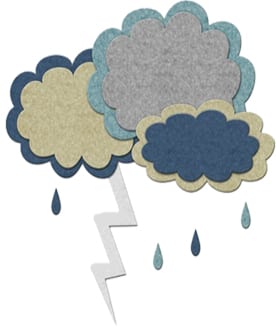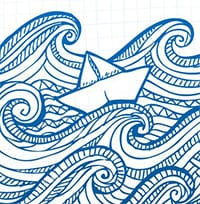Some of you may know this already, but I’m taking a few classes to finish my degree. For those of you going to college, have a child in college, or about to go to college, this may help your wallet.
I have talked about the cost of text books before, but this was my first experience as an adult in today’s market.
 I took a class this summer. The textbook was $60 used or $40 for a rental. Thinking I’d like to keep it for future reference, I decided to buy used. Imagine my shock when I discovered that the college bookstore didn’t carry the textbook for a class the college was offering. I had to prepay and have it ordered in.
I took a class this summer. The textbook was $60 used or $40 for a rental. Thinking I’d like to keep it for future reference, I decided to buy used. Imagine my shock when I discovered that the college bookstore didn’t carry the textbook for a class the college was offering. I had to prepay and have it ordered in.
After the class was over, I was shocked again when the bookstore wouldn’t buy it back. The college is offering the same class with the same book, so why not? Wanting to recoup some of my costs, I sold it online for $11.75 (postage was paid by the publisher).
Now I am taking my second class and that textbook was substantially more – $200 to buy new and $100 to buy used. I did my research and checked a number of websites for the best deal (remember to search by the ISBN number to get the correct edition). I decided to rent it for $40. On the first day of class, the Professor mentioned that we could have used prior editions. Knowing that ahead of time would have saved me a lot of money.
Lessons learned:
1. Don’t shop at the college book store.
2. Compare prices (new, used, or rental) from several online retailers.
3. Check for digital editions depending on your learning preference.
4. Plan ahead so you don’t have to expedite shipping. The cheaper the shipping the better the deal.
A couple of hard lessons learned that I will put to good use for the remainder of my classes. Textbooks are expensive. Learn from my mistakes to cut a nice chunk off of college costs.
 I was able to pay more than the minimum on my credit card bill
I was able to pay more than the minimum on my credit card bill To start, you need to do some brainstorming.
To start, you need to do some brainstorming. Because, if you don’t have a savings account to fall back on, you’ll be back in debt the next time you’re blindsided by an unexpected repair or medical bill. Life happens. If you don’t have money in the bank, how will you pay for the surprises it brings? With a credit card or a loan? It’s a bad habit, and it’s better to start breaking it now rather than later.
Because, if you don’t have a savings account to fall back on, you’ll be back in debt the next time you’re blindsided by an unexpected repair or medical bill. Life happens. If you don’t have money in the bank, how will you pay for the surprises it brings? With a credit card or a loan? It’s a bad habit, and it’s better to start breaking it now rather than later. One way to “find” money is by plugging the leaks in your spending. You’ll take back that wasted cash and put it where it can do some good. To do this, you need to know where your money is going, and that means tracking your spending. For more information on how to do this,
One way to “find” money is by plugging the leaks in your spending. You’ll take back that wasted cash and put it where it can do some good. To do this, you need to know where your money is going, and that means tracking your spending. For more information on how to do this,  Now total the columns.
Now total the columns.
 It’s Hurricane Season! At least it will be on June 1st on the Atlantic side. That gives you 2 weeks to plan your strategy – just in case.
It’s Hurricane Season! At least it will be on June 1st on the Atlantic side. That gives you 2 weeks to plan your strategy – just in case. 4. Charge your cell phones. Assume you’ll be without electricity for a few days. After the storm, use your phone sparingly.
4. Charge your cell phones. Assume you’ll be without electricity for a few days. After the storm, use your phone sparingly. 8. Prepare your food pantry. If you are staying in place, make sure you have non-perishable food and water (and a manual can opener). Non-perishable means boxed or canned – they last longer than fresh foods or foods that require refrigeration. Don’t buy items that require milk, eggs, or cheese to prepare. If they’re pre-cooked, that’s even better – they might taste better heated, but it’s not necessary. Buying non-perishables is something you can do right now. Stores sell out fast, so it’s good to have your prepper foods before the hurricane is spotted.
8. Prepare your food pantry. If you are staying in place, make sure you have non-perishable food and water (and a manual can opener). Non-perishable means boxed or canned – they last longer than fresh foods or foods that require refrigeration. Don’t buy items that require milk, eggs, or cheese to prepare. If they’re pre-cooked, that’s even better – they might taste better heated, but it’s not necessary. Buying non-perishables is something you can do right now. Stores sell out fast, so it’s good to have your prepper foods before the hurricane is spotted. 10. Cash! When power outages happen, credit card and ATM machines may not work. Hurricanes bring widespread power outages, downed trees and flooding. It might not be easy (or possible) to drive far enough to find a store or bank that still has electricity.
10. Cash! When power outages happen, credit card and ATM machines may not work. Hurricanes bring widespread power outages, downed trees and flooding. It might not be easy (or possible) to drive far enough to find a store or bank that still has electricity.